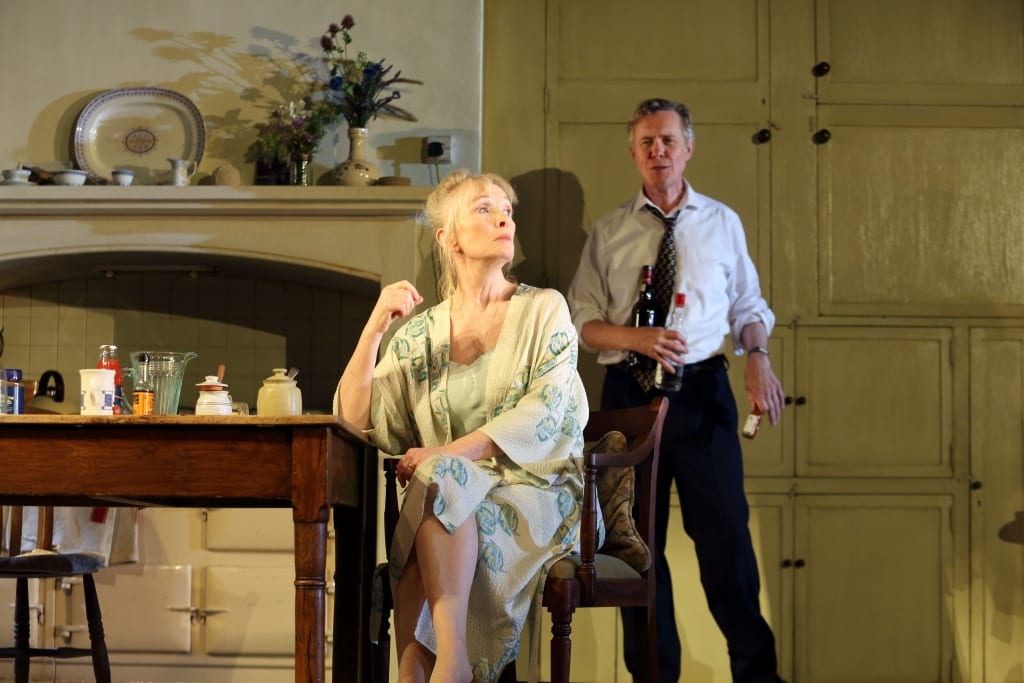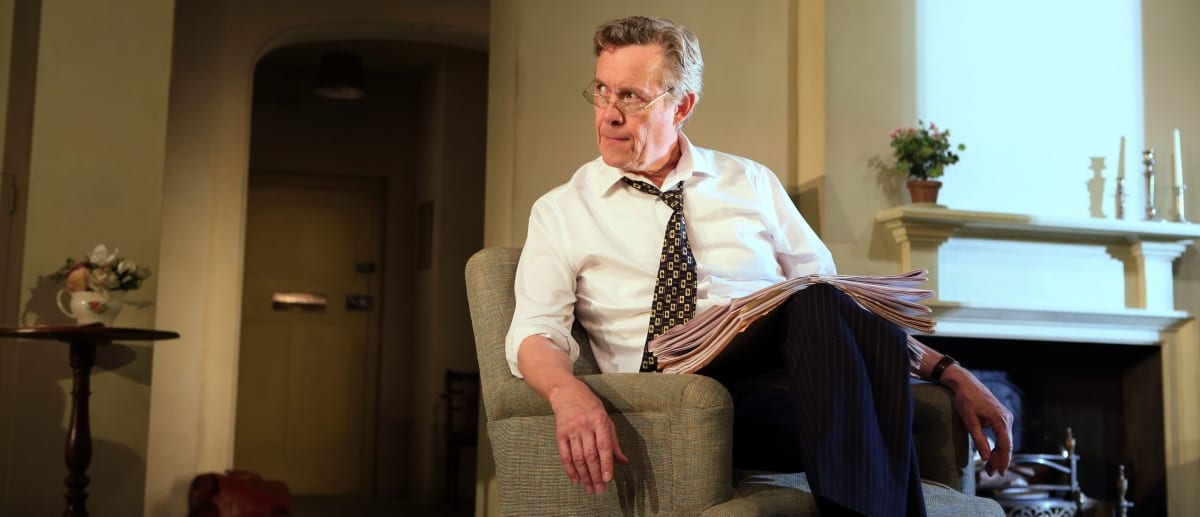As you take your seat the music of ‘The Lark Ascending’ washes across a stage carrying the outlines of a country house, and it would be easy to assume we are about to receive another dose of familiar English nostalgic pastoral. Not a bit of it. As the lights go up on Hildegard Bechtler’s layered and deep set you notice an air and tone of austerity and domestic neglect as if time has stopped; and as Alex Jennings and Lindsay Duncan begin to argue at first wryly and then more acidulously, you sense that something much darker and more unsettling is on its way.
Simon Woods’ first play is set in May 1988 and offers a snapshot of a frayed political marriage at the highpoint of Mrs Thatcher’s England. Conservative junior minister Robin Hesketh (Alex Jennings) is back in his Cotswold constituency home as usual for the weekend and on something of a high after a successful outing in ‘Any Questions’ distinguished by his support for ‘Clause 28’. His wife Diana (Lindsay Duncan), nursing an apparent hangover, is unsympathetic for both political and, it turns out, personal reasons. The play runs straight through for 90 minutes and much of it consists in domestic wrangling that starts as gentle jousting and then becomes much more mutually wounding, in a way that is strongly reminiscent of ‘Who’s Afraid of Virginia Woolf?’ which must have acted as a model.
There is a lot to recommend here – the dialogue is genuinely witty, and the playwright does his best to set up an even-handed contest between the Guardian-reading sympathies of Diana and the Thatcherite ideology of Robin. However, there are signs of inexperience that do impinge. At points it seems as though we are fighting the politics of today as much as the 1980s; and given the way topics come around again and again one would not want it continue for more than the given length, despite some excellent one-liners. The denouement is very poignant, but the transitions of mood and theme are awkwardly achieved: there are perhaps subtler ways of making the point that the political is almost always also the personal.

These flaws are minimised though by the superlative quality of the double-act at its centre, which shows these two subtle performers at the very top of their game, both individually and in tandem. Alex Jennings is almost too subtle for a role which needs to transition from starchy, emotional repression through to a final crumbling – one imagines Edward or James Fox more naturally in this sort of patriarchal Establishment role. But he crucially manages to make an unsympathetic persona very touching, especially in the final stages, where each gesture and movement and inflection is made to count exquisitely. Duncan also covers a hugely impressive emotional gamut, with the kind of precise, targeted comic timing for which she is so well-known then transitioning too into a raw emotional collapse at the end that is – in retrospect – delicately foreshadowed elsewhere. These are performances to treasure.
The tone of melancholy and regret that acts as an increasingly powerful undertow throughout the piece is expertly endorsed by other creative contributions. The handsome but desultorily furnished set tells its own melancholy story; a home cinema projection has its own sepia-tinged implications; and lighting designer Jackie Shemesh skilfully evokes both the brightness of a Spring morning and the fading wan fortunes of the family within. Credit should also go to movement director Shelley Maxwell for encouraging the players to explore all points of the set, including rooms out of sight. There is always the danger in a two-hander that things become becalmed and static, and yet here you always had something to look at as well as to listen to, with each gradation of meaning and emotion echoed in a matching physical movement or reaction.
Overall this production shows the National Theatre at its well upholstered best, and a packed audience responded well to its shifts of mood even when the scaffolding of the author’s approach was very visible. If you are a follower of these two consummate professionals then this will be a must-see; and amidst the swirl of our own current politics there are many points of contact to relish, whether comic or tragic, which are then explored in greater intellectual depth in the programme’s essays.

